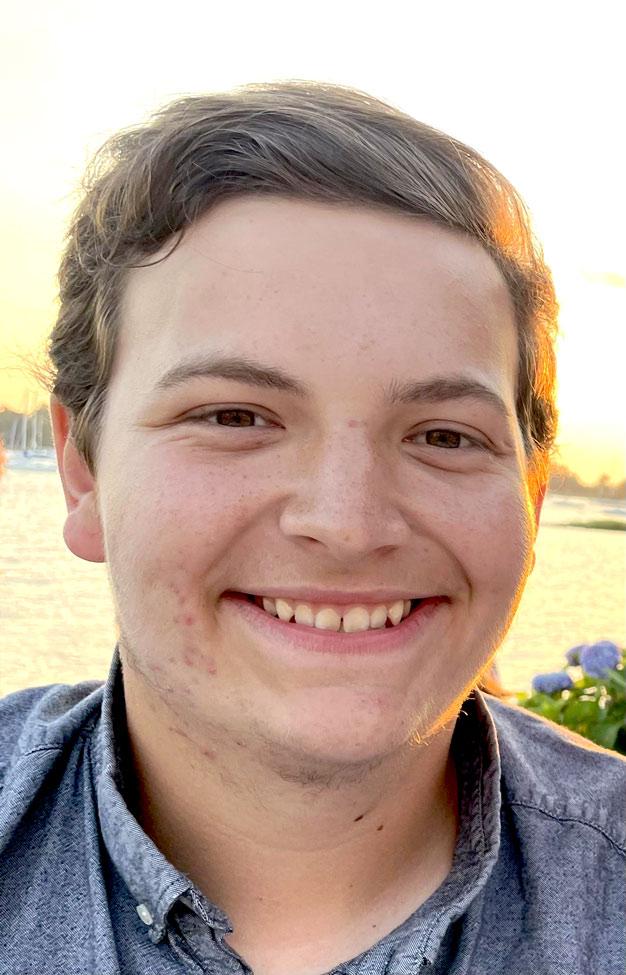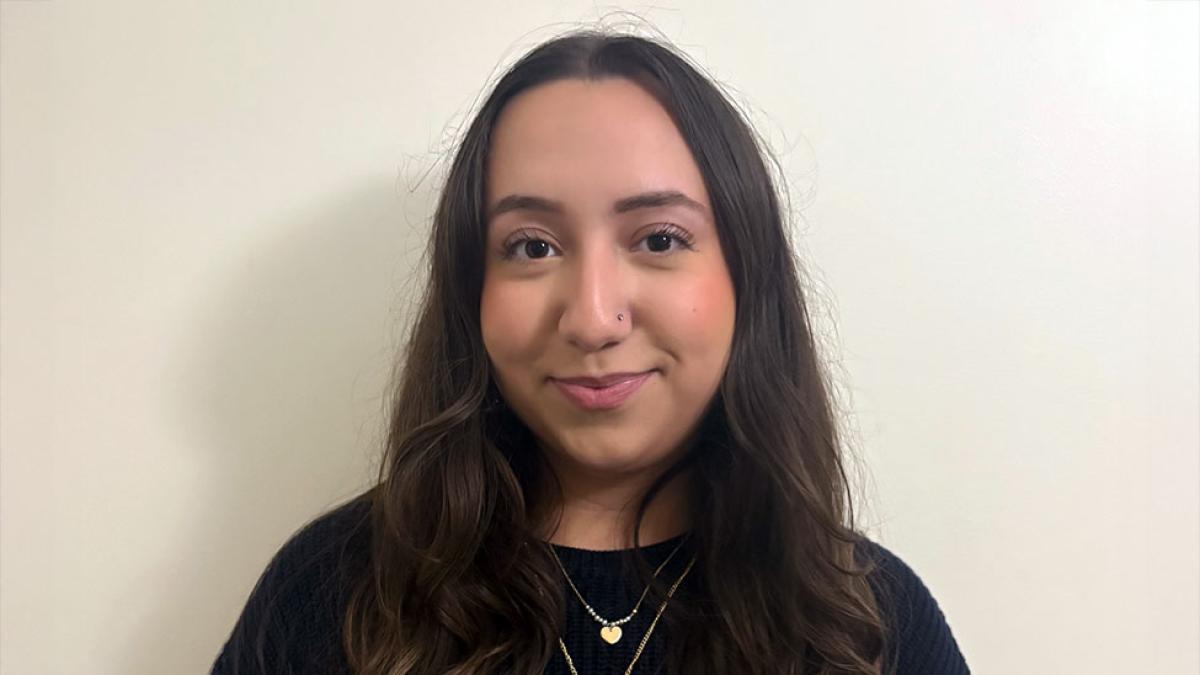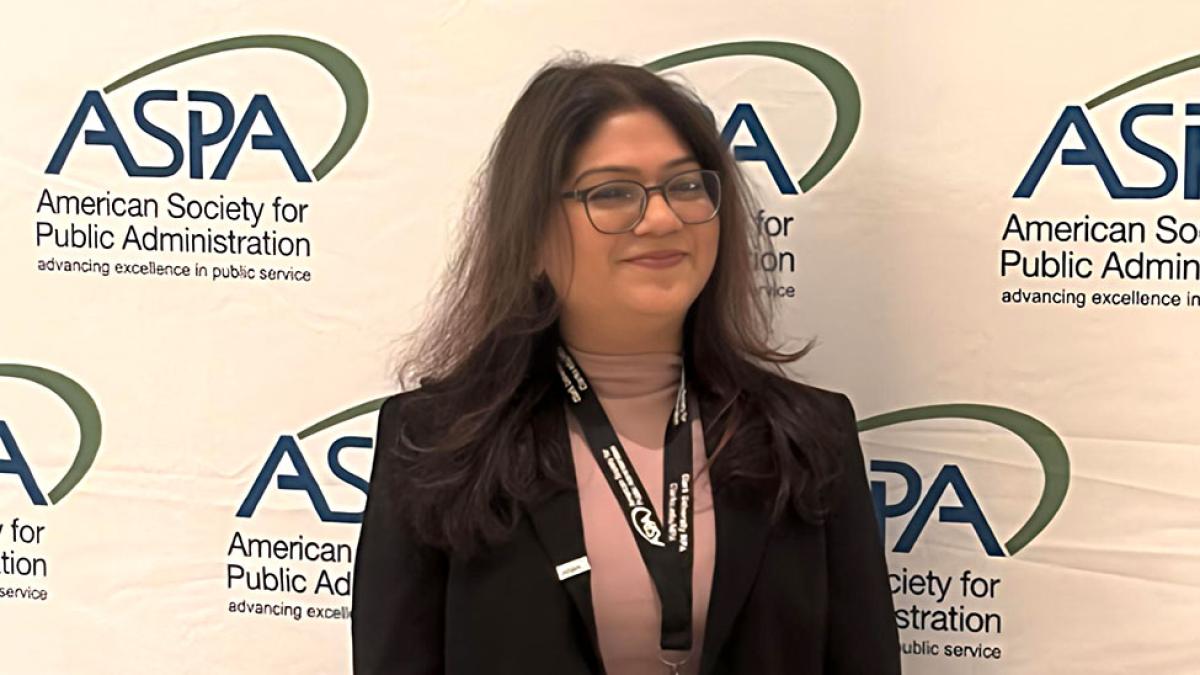
Where Art Meets Activism: Q+A with Nathan Lanum

Nathan Lanum
Class of 2025
Writing for Diversity and Equity in Theater and Media, BA
How did you become interested in pursuing a BA in Writing for Diversity and Equity in Theater and Media (W4DETM)?
I had been interested in playwriting, as well as activism and political issues, so when I received an email about the WDETM program, I immediately knew it was something I was interested in. Upon meeting the program director, Assistant Dean S. Brian Jones, and learning about the program’s vision, I was fully on board.
Why did you choose to attend Pace?
Originally, I decided to come to Pace to see what my life would look like in a totally different environment, thinking New York would be a good place for that. I am from Kirkland, Washington, a suburb of Seattle, and I started saying things like "when I'm in New York," instead of "if." At some point, it just hit me that there's really nowhere else I'd rather be. And now that I'm here, and at Pace, I have so many things keeping me here.
What have your experiences been like in this program? What faculty have been instrumental in your academic journey?
Assistant Dean Jones and Colby Hopkins, program coordinator, are two people I always look forward to seeing and working with, not only because their knowledge and wisdom are so valuable, but also because they are just wonderful people. I love Colby's willingness to work with us and meet us where we are at with things such as service projects and social justice workshops, and Dean Jones's incredible ability to brighten a room, capture its attention, and teach. I look up to them not only as mentors in this program, but as people as well.
There have also been other incredibly helpful Pace professors along my academic journey. I would be remiss to not include professors Molly Rydzel and Becky Scott, from the Film and Screen Studies department as instrumental in how I think of and shape stories, as well as Beto O'Byrne for his incredible teachings in both playwriting and critical race theory.
I love [Program Coordinator] Colby Hopkins's willingness to work with us and meet us where we are at with things such as service projects and social justice workshops, and Dean Jones's incredible ability to brighten a room, capture its attention, and teach. I look up to them not only as mentors in this program, but as people as well.
What kind of research and/or activities have you been engaged in as part of this program and how have they been meaningful to you?
This program has me interested in all kinds of research, all the time, about so many different things that it can be difficult to just pick one. As of late, I've been researching a lot about topics related to the "manosphere," which are not particularly fun, but important to me. This research has led to wanting things to change in regard to how men treat each other and others, and so I've been working hard at combining my passion for both this research and creating something out of it artistically. I hope to share this work within my program when it's ready.
What other activities or organizations are you involved in at Pace?
I am a co-founder and president of Pace's improv club on the New York City campus, Setters Unscripted. Through this role, I help decide where we play improv games and prepare for our shows which occur every few months. It's been a lot of fun creating this club and seeing it grow and change over time. I really love doing it; it's something I have a lot of passion for, and I think it sort of ties into my passion for writing and thinking creatively. I also try to be as active a member as possible of Setter Stage, the theater club on campus.
What would you like to do upon graduation/what are your career goals?
There are so many paths to take that it can be difficult to choose, but I think I would like to stay in New York and be a musical theater writer for a time, picking up opportunities where I can, before eventually moving on outside of New York wherever the wind may bring me. One thing I love about my program is the versatility it equips me with, so if I end up doing something I may not enjoy, I have the ability to switch to something else.
What advice would you like to give to our current students?
Both within and outside of college life, I’ve discovered that attitude will make or break an experience. If I go into a class excited to take it, I'm more likely to enjoy it, but if I go into a class expecting to hate it, I probably will. Sometimes your expectations can feel out of your control, but when you don't know what to expect, I find the safest option is always to err on the side of positivity, rather than negativity.


